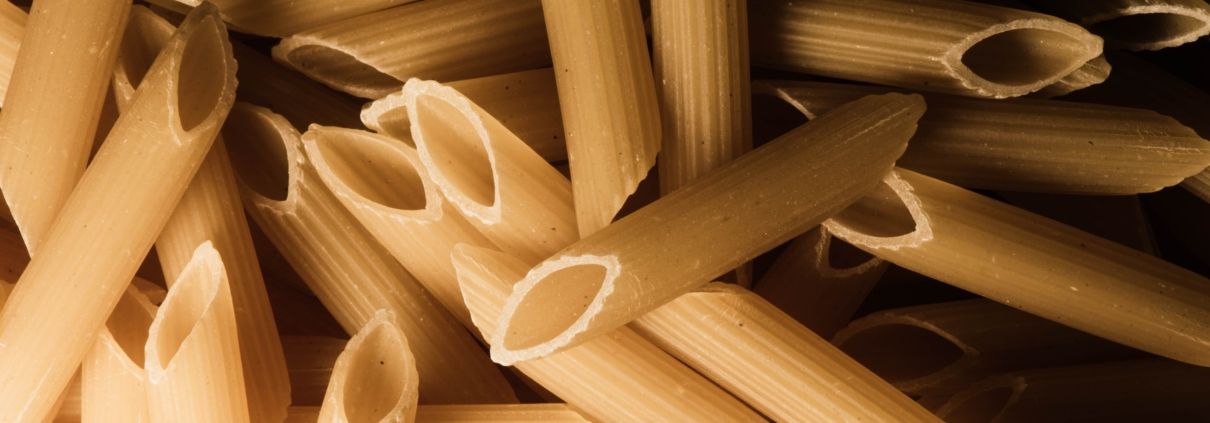Penne lisce or penne rigate? Obviously PENNE LISCE. But why?
Italy, the country of food, tradition and culture, with its 23.5Kg of pasta consumption per person, per year, gives us another battle on food.
What is the type of Penne Italians prefer? Lisce (smooth) or Rigate (with little grooves on it), and why do they choose one or the other?
If you ask your Italian friend how they prefer their penne, they will all answer differently, ignoring that the Penne Lisce (“smooth” penne) have a historical and practical background, making them the first choice in their range.
The manufacturing/production process
Penne lisce: long-drying, old method; allows pasta to be completely smooth, and to absorb better without breaking.
Penne rigate: quick-drying, industrial; pasta has different levels and it’s difficult to cook it even; if it’s often over-cooked and not tasty.
When pasta got industrialized, the producers were no more using bronze tools, and they were looking for a quicker procedure. They decided to add grooves to it – called “righe” in Italian – allowing the pasta to absorb the sauce better, and increasing the production in a shorter period of time.
Visualizza questo post su Instagram
Consumer’s vs chef’s choice
Consumers: Penne rigate
Consumers prefer to use this type of penne as they’re used to buy industrial pasta and to follow instructions. Due to its shape and grooves though, the Penne are often unevenly cooked. The result is then either too much “al dente” or over-cooked.
Chef: Penne lisce
This type of Penne are the perfect symbol of Italian tradition. Thanks to their long-drying process, they absorb pasta sauce better than any other shape, enhancing the quality of the ingredients in it. The absence of grooves also helps to maintain and to control the cooking process, which results in a perfect “al dente” pasta product.
Are you ready to try the difference yourself?
You love pasta? Don’t miss our event True Italian Pasta Week from January 25th to 31st.
Cover photo by CHUTTERSNAP on Unsplash
Article edited by Sofia Belen Sanchez



 True Italian
True Italian







Leave a Reply
Want to join the discussion?Feel free to contribute!